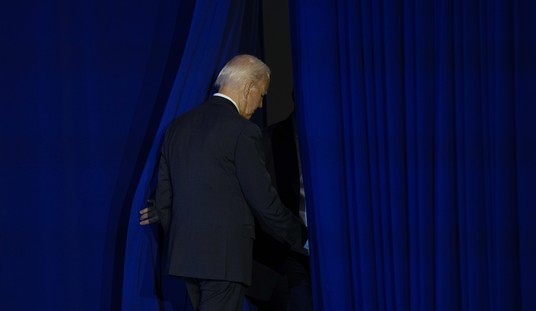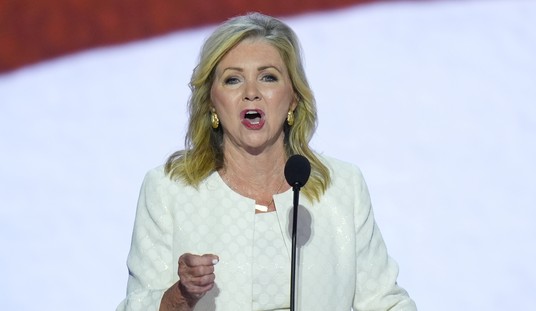If there is one thing President Donald Trump excels at, it’s keeping people guessing – including his allies. With the president’s tariffs set to go into effect on April 2, a day Trump dubbed as “Liberation Day,” White House insiders are reportedly nervous about the unpredictability of what could be a momentous shift in U.S. economic policy.
The imminent tariffs have sown confusion among key members of the Trump administration and the president’s allies, according to Politico. The White House has projected a confident face for the public. But there appears to be some trepidation behind closed doors.
Just days out from Trump’s April 2 announcement of global tariffs, which he has hailed as “Liberation Day,” even those closest to the president — from Vice President JD Vance to his chief of staff Susie Wiles and his own Cabinet officials — have privately indicated that they’re unsure exactly what the boss will do, according to three people who have spoken with them.
While some details of the administration’s plan for what Trump has dubbed “reciprocal tariffs” on global trading partners are starting to trickle out, the president has at times upended them or floated contradictory policies that are keeping everyone — even his inner circle — guessing.
One White House ally told Politico, “No one knows what the f*** is going on.”
The president’s seemingly erratic policy shifts are certainly keeping people on their toes—even within the administration. With inflation a persistent problem Americans are facing, there are concerns that the tariffs will place even more of a burden on people struggling to make ends meet. Everyone seems to be asking, “What is President Trump going to do, and how will it affect our wallets?”
The ramifications of “Liberation Day” are uncertain. But some Republican lawmakers, like Sen. Roger Marshall (R-KS), support the president's tariff idea.
Recommended
“President Trump is a leader who brokers deals that put AMERICAN workers first. The days of unfair, one-sided trade deals that let foreigners take advantage of our country are over.
The sky is not falling. @POTUS is protecting our Steel and Aluminum industry workers — and in the end, America will have the upper hand.”
President Trump is a leader who brokers deals that put AMERICAN workers first. The days of unfair, one-sided trade deals that let foreigners take advantage of our country are over.
— Dr. Roger Marshall (@RogerMarshallMD) February 11, 2025
The sky is not falling. @POTUS is protecting our Steel and Aluminum industry workers — and in the…
Others, like Sen. Rand Paul (R-KY), aren’t convinced. During a private Senate lunch, he gave a presentation explaining why tariffs would be detrimental to American consumers, saying, “The public feels like free trade has sold us out, but Americans are richer for it.”
The president has floated several different tariffs on other countries even though he has not committed 100 percent to any of them. The proposed actions include reciprocal tariffs, agricultural tariffs, and duties targeting goods from Mexico and Canada.
Treasury Secretary Scott Bessent explained that the White House “will put up the tariff wall to protect our economy, protect our workers, and protect our industries” if other countries do not ease their duties on American products. “Get ready to start making a lot of agricultural products to be sold INSIDE of the United States,” he added.
The administration has also pushed tariffs on Venezuela and the automotive sector. “Any Country that purchases Oil and/or Gas from Venezuela will be forced to pay a Tariff of 25%,” Trump declared. However, companies that build their vehicles in the United States will face no tariffs.
If Trump follows through on his promise, it could cause a massive upheaval on the international stage. There are several ways this could go.
On one hand, it may protect domestic industries such as steel and manufacturing from foreign competition by making imported goods more expensive. In turn, this would spark an upsurge in domestic production, creating more jobs that American workers can fill.
The tariffs might also make it more attractive for foreign businesses to move their manufacturing operations to the United States. The move could decrease the U.S. trade deficit with other nations, punishing those that engage in unfair trade practices.
Tariffs might apply pressure on other countries to lower their trade barriers or make other concessions, such as boosting intellectual property protections. This is especially true of China.
But the upshot might not be as rosy as we might hope. Trump’s tariffs could raise prices for consumers on electronics, clothing, household items, and other important goods. Some economists estimated that a ten percent tariff on imports could cost U.S. households over $1,000 each year. In the face of inflation, this would be an unwelcome scenario, to say the least.
Additionally, instead of extracting concessions from other nations, it could prompt them to respond by levying their own tariffs, as Canada threatened to do earlier this year. The result could disrupt the supply chain and production because American companies will have to pay higher costs for the material they need to do business. Again, these higher costs would be passed on to American consumers.
Of course, the outcomes depend on how Trump proceeds with the tariffs, a question that might remain a mystery until April 2. The president could be playing a dangerous game here. But if the administration handles this the right way, the president’s gambit might just pay off.

























